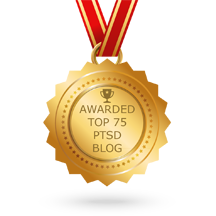Everybody has a different story about trauma. Nobody heals at the same rates, or has the same history to deal with. But the struggle affects everyone.
In my case, dissociating is one of the hardest things to handle. There's mild dissociating (daydreaming), and then there's violent dissociating. Then, you don't know where you are and fight to not black out.
You black out have no idea what your multiple personalities are doing or saying. Then, you wake up and don't know what happened. How do you apologize for that?
When I open my eyes in the morning, many times it's on four hours or less sleep. You try to focus your energy to be able to literally shock yourself awake. If you don't, you feel like you're in parallel universes all day long.
Now imagine doing that every day for a really long time.
On bad days, it almost feels like you have no control over it. It's a barrier that you have to get past. Otherwise, you have no idea of where you are.
Are meds the answer? In my opinion, no. Why? Because they're a band aid and don't help the problem. Is this because of something that one of my multiples or little kid hasn't been able to talk about? I don't know.
The point is it's there. Go to a job interview and fight to not cry or black out.
We know it's not our fault. As terrifying as this is at times, it's not abnormal in any way. Exhausting yes. Also, a normal response in trying to cope with and heal from horribly severe and untreated PTSD symptoms.
What helps you to keep your focus?
Sunday, March 24, 2013
One View of Dissociating
Labels:
abandonment,
balance,
blackouts,
focus,
PTSD survival,
PTSD symptoms
Subscribe to:
Post Comments (Atom)





No comments:
Post a Comment